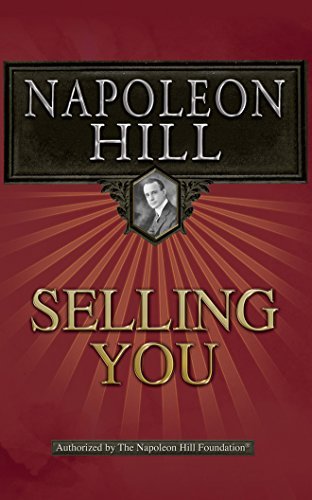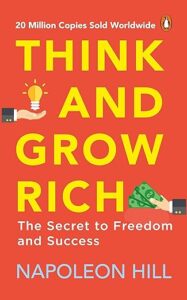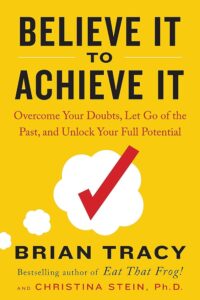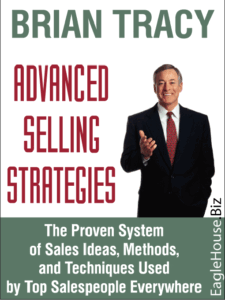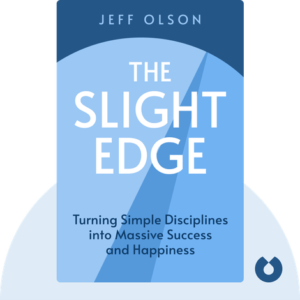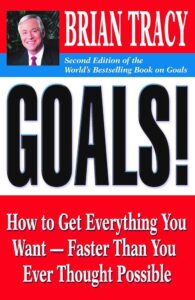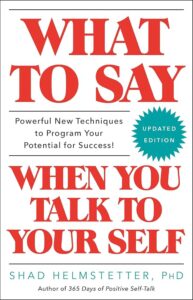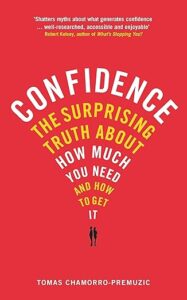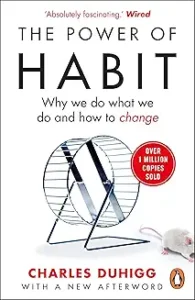Summary
1. Everyone Is Selling
📖 Mini-story Recap:
A young man named Edwin C. Barnes jumped off a freight train and boldly walked into Thomas Edison’s lab. When asked why he was there, he said confidently, “I am going to become his partner.” That day, he sold the most important thing—himself. He started by scrubbing floors, and five years later, he was indeed Edison’s partner, distributing the revolutionary dictation machine.
🧠 Key Insight / Mindset Shift:
You are always selling—even when you’re not in a sales job. Whether you’re applying for a job, convincing a friend, or raising a child, you’re selling ideas, influence, trust—and most importantly, yourself.
✅ Exact Instructions (Timeless Sales Truths):
- Sell Yourself First: Before anyone buys your product, idea, or proposal, they must believe in you.
- Develop 28 Sales Qualities: These include courage, imagination, physical fitness, belief in your product, and persistence.
- Avoid the 20+ Sales-Killer Habits: These include procrastination, pessimism, lack of planning, and failing to close the sale.
🔑 Pointers for Action:
- 🌟 Always act like you’re in the business of “you.” Your personality, voice, energy, and ideas are your brand.
- 📝 Make a personal audit: Which of the 28 qualities do you already have? Which are missing?
- 🚫 Eliminate habits that sabotage your influence (e.g., being late, making excuses, or lacking enthusiasm).
- 🎯 Practice planting motives in people’s minds—use genuine reasons, not manipulation or flattery.
2. People Buy Personality
📖 Mini-story Recap:
During the Great Depression, Hill needed $2,500 worth of ad space but had no money. He didn’t flatter the ad director; instead, he presented his need honestly. His straightforwardness impressed the man, and he got the space on credit. That launched his lecture series.
🧠 Key Insight / Mindset Shift:
People don’t buy what you sell—they buy who you are. A pleasing personality can outshine pricing, products, and even competitors.
✅ Exact Instructions:
- Don’t fake it with flattery—build influence through sincerity, honesty, and helpfulness.
- Cultivate a personality that’s warm, confident, and cooperative.
- Understand the 9 basic human motives that drive decisions (like self-preservation, financial gain, power, freedom, and creativity).
🔑 Pointers for Action:
- 👤 Make your personality your greatest asset—people are drawn to character and confidence.
- 🎯 Appeal to at least one of the 9 motives when influencing others (e.g., financial gain, love, or freedom).
- 🤝 Avoid high-pressure sales tactics. Instead, inspire action through understanding and empathy.
- 💡 Truth sells better than tricks. Tell your story honestly and watch how people connect.
3. Autosuggestion
📖 Mini-story Recap:
Imagine a radio station broadcasting 24/7. You can’t see the waves, but they’re there—constantly influencing minds. Napoleon Hill says your subconscious is just like that transmitter. And the frequency it tunes into? That’s based on the repeated thoughts you feed it. If you keep telling yourself “I can do this,” it starts believing it, acting on it—broadcasting it.
Hill recounts stories where people transformed their lives just by changing their mental scripts—repeating empowering phrases until their subconscious made success automatic.
🧠 Key Insight / Mindset Shift:
You can reprogram your beliefs by feeding your mind intentional thoughts, over and over again.
Autosuggestion is not wishful thinking—it’s self-directed programming that builds habits and character.
- Suggestion comes from others.
- Self-suggestion is intentional thought.
- Autosuggestion becomes automatic—a subconscious trigger that influences your behavior when it matters most.
✅ Exact Instructions (from Hill’s Playbook):
- Pick a short, powerful phrase. E.g., “Try to do the right thing because it is right.”
- Repeat it every morning, night, and throughout the day.
- Charge it with emotion and belief. Mere words won’t work—feel them.
- Visualize your goal. Creative visualization paired with affirmations amplifies impact.
- Do not expect miracles. Infinite intelligence won’t deposit money into your account—but it will lead you to the right path to earn it.
- Stick to it—obsessively. Desire must burn. Repetition must persist.
🔑 Pointers for Action:
- 🔁 Repeat positive affirmations daily with belief and emotion.
- 🖼️ Visualize your goal clearly. See it. Feel it. Act as if it’s already real.
- 🧱 Build mental pathways. New beliefs take time. Reinforce them like carving trails in your brain.
- 🔄 Avoid old mental patterns. Every time you resist an old habit, you strengthen the new one.
- 🎯 Commit to a definite purpose. Know what you want—and feed that desire with focused affirmations.
- 🗣️ Use the Self-Confidence Formula (Hill gives a written pledge to recite aloud daily).
4. A Definite Chief Aim
📖 Mini-story Recap:
Meet Louis Victor Eytinge, a man imprisoned for life and dying of tuberculosis. No hope. No allies. Yet, from the depths of prison and despair, he forged a purpose: first to regain his health, then his freedom. He fixated on this aim with such mental intensity that his body healed and society gave him a second chance. He walked out a free man, a living testament to the power of a definite chief aim
.🧠 Key Insight / Mindset Shift:
Success starts with a crystal-clear aim. Most people float aimlessly in life—not because they lack ambition, but because they’ve never chosen one clear, burning goal to commit to.
“Definiteness of purpose is the starting point of all achievement.” – Napoleon Hill
This isn’t goal-setting as we know it today. It’s about aligning your life force, emotions, environment, and subconscious mind to one clear mission.
✅ Exact Instructions (Hill’s 5-Step Success Formula):
- 🎯 Choose a definite goal. Define it in writing. Know what you want.
- 💪 Develop the power to achieve it. Use autosuggestion, faith, and persistence.
- 🗺️ Perfect a practical plan. Make it flexible and adaptable.
- 📚 Gather specialized knowledge. Learn what’s necessary to win in your field.
- 🔁 Persist until you succeed. Adapt, but never abandon the aim.
🔑 Pointers for Action:
- 📝 Write down your definite chief aim. Describe it vividly and specifically.
- 🧠 Burn it into your mind through daily repetition (see autosuggestion).
- 🔄 Make it your obsession. Eat, sleep, and breathe your goal.
- 🧲 Surround yourself with believers. Your environment must feed your vision, not fight it
- 🗣️ Speak it aloud. Verbal repetition creates emotional imprinting.
- 🧭 Let your goal guide decisions. Ask: Will this action bring me closer to my chief aim?
- ⏳ Don’t drift. Focus equals power. Scatter = stagnation.
⚡ Bonus Insight:
Brains, when marketed through a definite aim, have no fixed price.
The moment you specialize and focus your value through a definite purpose, your worth becomes limitless
5. The Master Mind
📖 Mini-story Recap:
Henry Ford wasn’t always a titan of industry. Born into poverty, limited education, and zero business connections—his future seemed bleak. But everything changed when he befriended Thomas Edison, Harvey Firestone, and other great minds. Ford’s growth accelerated exponentially when he harnessed their collective thinking. That was Master Mind power in action—a principle that helped him become one of the richest men in America
.🧠 Key Insight / Mindset Shift:
“No one achieves great power alone.”
A Master Mind isn’t just teamwork—it’s a high-frequency alliance of minds fused in harmony toward a definite purpose. It creates a third, invisible force greater than the sum of its parts. This is the real secret behind Carnegie’s empire, Ford’s rise, and Apple’s founding
.✅ Exact Instructions (from Hill’s system):
- 🤝 Form your Master Mind alliance—a group of 2–12 people committed to a shared goal.
- 🧭 Ensure complete harmony. One conflict can destroy the magic.
- 🗓️ Meet regularly (at least twice a week initially).
- 🎯 Define clear roles, responsibilities, and action steps.
- 💬 Encourage free-flowing, open idea sharing—with no ego or judgment.
- ⚖️ Agree in advance on how rewards, credit, and compensation will be shared.
- 📣 Keep the purpose burning—the leader must radiate belief and dedication
🔑 Pointers for Action:
- 🔍 Choose members based on shared values, not just skills.
- 🧠 Seek diversity in expertise, but unity in purpose.
- ✨ Inspire, don’t dominate. Everyone should feel valued.
- 📶 Tap into infinite intelligence—the “aha” ideas that emerge from harmony.
- 🧘 Maintain perfect ethical conduct—no one seeks unfair advantage.
- 💡 Use the group to refine and evolve your plans. Let the collective intelligence lead the way.
- 🚫 If harmony fails, restart or rebuild. A disharmonious alliance will sabotage your vision
6. Personality & Character
📖 Mini-story Recap:
Imagine a life insurance agent walking into your office. You don’t know the fine print of the policy, but something about this person feels… right. You sense trust, warmth, professionalism. You buy. Not the policy—but them. Why? Because personality sells more than the product
Napoleon Hill makes it clear: You can’t fake charm forever. True influence comes from inner character—and it radiates.
🧠 Key Insight / Mindset Shift:
“No one can have a pleasing personality without the foundation of a sound, positive character.”
Your character is your invisible magnet. No matter how polished your smile or style, people feel your true essence. A positive character draws positive people and opportunities. A flawed one repels.
Hill doesn’t advocate flattery or trickery. Instead, he champions authentic character built by thought, habit, and integrity.
✅ Exact Instructions:
- 🪞 Start within—refine your thoughts and motives.
- 🚫 Avoid these 21 negative traits: jealousy, dishonesty, greed, gossip, egotism, fear, excuses, etc. (a full list is given)
- .
- ✅ Cultivate the 21 elements of a pleasing personality, including:
- Good showmanship
- Harmony with self
- Voice tone
- Tact
- Sincerity
- Forceful speech
- Personal magnetism (charisma)
- Imagination, enthusiasm, good posture, etc.
- 👗 Master the “Psychology of Good Clothes”—Dress in a way that empowers your confidence and matches your purpose
- 🧠 Use autosuggestion to reinforce positive identity (linking back to Chapter 3).
- 🧘 Keep peace within. Your outer harmony depends on your inner one.
🔑 Pointers for Action:
- ✍️ Make a two-column list: On one side, note your negative traits. On the other, the traits of a pleasing personality. Create a plan to shift.
- 🎯 Work on sincerity of purpose. Do you truly mean what you say and do?
- 💬 Practice forceful, clear communication. Have something worth saying.
- 👥 Be a great listener. Listen to understand, not just to reply.
- 💡 Avoid flattery. Inspire trust through truth, not charm.
- 🧲 Find your unique charisma—and let it shine through self-awareness and service.
7. Enthusiasm & Self-Control
📖 Mini-story Recap:
In a time of crisis at the National Cash Register Company, its sales manager, Hugh Chalmers, faced a crumbling sales force demoralized by rumors of bankruptcy. As complaints piled up during a national sales meeting, Chalmers did something shocking—he jumped on a table and ordered a shoeshine. That unexpected burst of energy snapped everyone out of despair. Within days, the entire sales force was fired up again, and business turned around. That moment became legendary as “The Million-Dollar Shoeshine.”
🧠 Key Insight / Mindset Shift:
“Enthusiasm is contagious—and irresistible.”
But only when it’s real and backed by self-control.
Without enthusiasm, your words fall flat. Without self-control, your enthusiasm turns into chaos. The perfect balance of both creates unstoppable influence.
Enthusiasm magnetizes your thoughts. Self-control channels that energy into results. You influence others through what you say, do, and especially what you think
.✅ Exact Instructions:
- 🔥 Stimulate enthusiasm through:
- Work you love
- Being around enthusiastic people
- Personal health and success
- Helping others
- Wearing clothes that make you feel powerful
- 🧠 Use thoughts as tools. Control what you focus on—your dominant thoughts shape your destiny.
- 🤐 Guard your mind. Don’t let doubt creep in—many salespeople sabotage themselves before hearing a “no.”
- 🎯 Persist with belief. If someone says no, you stay. Self-control keeps you resilient until “no” becomes “yes”
🔑 Pointers for Action:
- ⚖️ Balance passion with poise. Be excited—but never desperate.
- 👁️🗨️ Watch your inner voice. Don’t suggest failure to yourself. Pre-sell success to your own subconscious.
- 😄 Radiate enthusiasm in your posture, voice, and thoughts. People feel your vibe before they hear your words.
- 💬 Close with confidence. Don’t ask timidly. Assume the “yes.”
- 🧘 Tame your reactions. If anger or fear hits, pause, breathe, and respond, don’t react.
- 🧲 Praise others enthusiastically and sincerely. This builds respect and attracts support effortlessly
8. Imagination
📖 Mini-story Recap:
James J. Hill, a 40-year-old telegraph operator earning $30/month, had no money or powerful connections. But he had one thing—imagination. In his mind’s eye, he envisioned a railway stretching across America. He persuaded others to see that vision too. That dream became the Great Northern Railway, one of the most successful rail systems in history. It all began—not with rails or investors—but in the workshop of his imagination
.🧠 Key Insight / Mindset Shift:
“Imagination is the workshop of the mind where desires are shaped into reality.”
Everything—from fortunes to freedom—starts in your mental movie screen. If you can’t see it there, you’ll never build it here.
Napoleon Hill emphasizes that imagination is not fluff—it’s the power source behind every great invention, sale, and life transformation. It doesn’t matter if you’re a business owner or employee—your ability to create and apply ideas makes you invaluable
.✅ Exact Instructions:
- 🧠 Use imagination to solve problems—Break them into smaller parts and rearrange them into solutions.
- 🔍 Visualize yourself succeeding—Create your success scene in detail before you act.
- 💡 Link imagination to your definite chief aim. See how your goal works in the real world.
- 🤝 Partner with imaginative people. If you struggle to generate ideas, form alliances with creatives
- ✍️ Keep an idea notebook. Sketch small improvements, new business angles, or product twists daily.
- 🏗️ Design and refine your plans in the quiet of your mind before taking action.
🔑 Pointers for Action:
- 🎨 Rehearse your pitch, speech, or close mentally first. If it works in your mind, you can polish it for reality.
- 🏪 Find a pain point in your business or industry—then imagine a better way.
- 🛠️ Build your dream step by step, starting with thought. First thought → then plan → then action.
- 📦 Simple ideas sell best. Think of 99 Cents Only Stores—imagination turned a basic pricing twist into a $650M business
- 🧲 Create compelling motives. Hill convinced a governor to pardon a prisoner by imagining a bigger story: the good that man could do for 160,000 others
9. Self-Confidence
📖 Mini-story Recap:
A shy, timid newspaper clerk once heard a lecture on self-confidence that shook his soul. Inspired, he applied for a job in advertising sales—a job most believed he’d fail at. Instead of choosing easy targets, he picked the hardest merchants to sell to. Why? Because he knew every rejection would grow his self-confidence. That man later became one of America’s greatest salesmen, all because he believed in himself first
🧠 Key Insight / Mindset Shift:
“If you don’t believe in yourself, no one else will.”
Self-confidence is not arrogance. It’s inner certainty. It’s the fuel that powers persistence, persuasion, and poise. Without it, even the best products or ideas will fail to gain traction. With it, you become a magnetic force that attracts trust and opportunity
.✅ Exact Instructions (Hill’s Confidence Blueprint):
- 🪞 Recite the Self-Confidence Formula daily (provided in the book):
- Affirm your ability to achieve.
- Visualize your future self in detail.
- Use autosuggestion to build inner power.
- Write and read your definite chief aim.
- 🔁 Repeat empowering affirmations like:
- “I am becoming more confident every day.”
- “I radiate belief in myself and my mission.”
- 👥 Support your family’s confidence too—send your loved ones into the world with belief in themselves
- 🔥 Challenge yourself intentionally—choose tough situations to strengthen your inner muscle.
- 📜 Memorize and internalize this poem (quoted in the book):
“If you think you can—you can.
Success begins with a fellow’s will—
It’s all in the state of mind.”
🔑 Pointers for Action:
- ✍️ Write and sign your self-confidence pledge. Read it aloud every morning.
- 🎭 Act confident even when you don’t feel it. The outer shapes the inner.
- 🧠 Use failures as training. Reframe every “no” as preparation for a bigger “yes.”
- 💡 Remember: People mirror your belief. When you radiate certainty, others respond with trust.
- 🚪 Push through fear of rejection. Every door closed sharpens your approach.
- 🌱 Grow your mindset daily with books, mentors, and positive self-talk.
10. Initiative & Leadership
📖 Mini-story Recap:
In 1916, Napoleon Hill needed $25,000 to start an educational institution—a massive sum in those days. He didn’t sit around hoping for a miracle. Instead, he made it his Definite Chief Aim, created a detailed plan, and acted with initiative. Within weeks, backed by no formal assets—only determination and faith—he raised the funds. That’s not luck. That’s leadership in motion
.🧠 Key Insight / Mindset Shift:
“Leadership is something you must invite yourself into—it never thrusts itself upon you.”
Initiative means doing what needs to be done without being told. Leadership means creating a compelling future and moving others toward it.
They are inseparable twins: Initiative is the foundation; Leadership is the structure built upon it.
✅ Exact Instructions (Hill’s Action Blueprint):
- 🧭 Decide exactly what you want.
- 🧱 Build a realistic plan with input from your Master Mind group.
- 💡 Take initiative daily—especially in small things.
- 🚫 Destroy procrastination using autosuggestion and self-discipline.
- 🧠 Visualize yourself as a leader and act accordingly—even before anyone follows.
- ⏱️ Make prompt decisions. Hesitation kills trust.
- 🤝 Delegate smartly—but never shift accountability
- 🗣️ Promote initiative in others—it reinforces your own leadership.
🔑 Pointers for Action:
- 🎯 Start small: Build initiative in your daily work—show up early, stay prepared, solve without being asked.
- 🧠 Think initiative. Speak initiative. Live initiative. The more you promote it, the deeper it embeds in your own mind
- 🔁 Repeat your leadership mantra: “If it is to be, it is up to me.”
- 🔍 Assign roles based on love: Great leaders help others find joy in their tasks—not just efficiency
- .
- 📅 Hold weekly planning sessions where you act, reflect, and delegate.
- 🔋 Recharge regularly. Just like a battery, leaders need connection, inspiration, and time to renew.
🧨 “Strong leaders make prompt decisions. Indecision is death by hesitation.”
11. Persistence
📖 Mini-story Recap:
During the gold rush, R.U. Darby’s uncle found a rich vein of gold. Excited, he borrowed money, bought equipment, and started mining. But after a few loads, the vein disappeared. They gave up, sold the machinery, and went home. The new owner brought in an engineer, discovered the gold vein was just three feet away, and struck it rich. The Darbys had quit too soon—a classic example of how lack of persistence costs fortunes
.🧠 Key Insight / Mindset Shift:
“Persistence is faith in motion.”
Persistence isn’t just willpower—it’s an act of faith. It’s the mindset that sees every defeat as training, not failure. Every obstacle is not a stop sign, but a stepping stone to higher skill and inner strength
.Hill reveals that every successful person he’s known faced crushing opposition—and succeeded because they refused to quit.
✅ Exact Instructions (Hill’s 8 Persistence Triggers):
- 🎯 Definiteness of purpose – Know what you want. Clear goals create lasting drive.
- 🔥 Desire – You can persist easily when the fire of desire burns bright.
- 💪 Self-reliance – Believe in your own power to overcome setbacks.
- 📋 Definite plans – Even flawed plans encourage action over time.
- 📚 Accurate knowledge – Confidence grows when your plan is backed by facts.
- 🤝 Cooperation – Surround yourself with encouragers and positive influencers.
- 🧠 Willpower – Train your mind to stay focused on your goals.
- 🔁 Habit – Repetition forms character. Persistence becomes automatic
🔑 Pointers for Action:
- 🧪 Treat every failure as feedback. Ask, “What is this teaching me?”
- 📈 Track your persistence daily—what did you push through today?
- ⚔️ Confront fear with action. Fear fades when faced.
- 🚫 Avoid persistence killers like procrastination, indecision, and excuse-making
- 🧾 Take the Persistence Inventory—Hill offers a self-assessment to identify weak spots and build this mindset like a muscle
- 📖 Revisit autosuggestion—Persistence is powered by mental reinforcement.
💡 “Temporary defeat is not permanent failure—unless you quit.”
12. Making the Sale
📖 Mini-story Recap:
One rainy afternoon, an elderly lady stood at the entrance of a store, just waiting for the weather to pass. A young salesman welcomed her warmly without any intent to sell. He chatted, held her umbrella, and treated her with gentle respect. Months later, a letter arrived—she was Andrew Carnegie’s mother, and she requested that same salesman be sent to furnish their Scottish mansion. That unexpected moment of genuine service became the sale of a lifetime
.🧠 Key Insight / Mindset Shift:
“The sale begins long before you mention the product.”
The master salesperson understands that confidence, motive, and timing make or break the deal. Closing isn’t an event—it’s a process that begins with insight, trust, and empathy.
Napoleon Hill compares selling to a three-act play:
- Act I: Interest – Grab attention and open the mind.
- Act II: Desire – Build emotional and logical motive.
- Act III: Action – Close with certainty and confidence
✅ Exact Instructions (Hill’s Sales Sequence):
- 🎯 Qualify the prospect:
- Can they afford it?
- Are they the decision-maker?
- What are their motives?
- Who else influences the decision?
- 🧠 Neutralize the mind:
- Eliminate resistance, fear, and objections.
- Build trust and open receptivity.
- 💬 Listen carefully:
- Let the buyer talk. Ask tactful questions.
- Use their own words to tailor your pitch.
- 🎭 Dramatize your presentation:
- Use stories, analogies, and vivid word pictures.
- Target one of the 9 buying motives (e.g. fear, love, freedom, gain).
- 📄 Close with confidence:
- Don’t ask “Are you ready to buy?”
- Instead, assume the sale and write up the order with poise
- 💡 Follow-up even if they say no.
- A “no” today may be a “yes” tomorrow.
🔑 Pointers for Action:
- 🧠 Make the sale in your mind first. Doubt is contagious—confidence is magnetic.
- 🎤 Own the first impression. The first 30 seconds determine the next 30 minutes.
- 🕵️ Discover the buyer’s true motive. No motive = no sale.
- 🧘 Avoid desperation. Neediness repels; confidence closes.
- 📊 Prepare like a professional. Study the client, industry, objections, and alternatives.
- 🎁 Deliver value first, ask second. Even a rainy-day conversation can turn into a million-dollar deal.
🧠 “Selling is not talking someone into something—it’s helping them see what they already want.”


